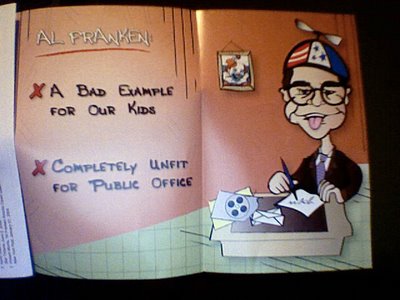How to Recapture Democracy from Corporate Money
Yesterday the Supreme Court of the United States ruled in Citizens United v. FEC that campaign financing laws that prohibited corporations from directly spending money on campaign advertisements violated the First Amendment free speech rights of those corporations. In doing so, the Supreme Court overruled (or ignored) nearly one hundred years of jurisprudence and precedent (and isn’t that just the sort of “judicial activism” that so incenses the right?). The concern with this ruling is that corporations (especially large corporations) will be able to spend large amounts of money to influence elections notwithstanding that the expenditures of large amounts of money in that way is seen to have a corrupting influence on elections and also may have the effect of rendering an individual citizen’s voice even less relevant. By the way, I do recognize that the Supreme Court’s opinion also appears to let unions spend on political advertising in the same way; my comments here, though addressed to corporations, should also be thought of as applying to unions, too.
The perception (which could, I suppose, be wrong) is that this ruling benefits Republicans who are generally seen as being more closely aligned with “big business”. Just imagine what the next election will look like if the drug companies and insurance companies are able to spend unlimited amounts of money on campaign advertisements (and you thought all of the ads for Viagra, Cialis, and Levitra were obnoxious…). Or just think of the impact locally if a particular corporation was denied a zoning variance. What might the next mayoral or city or county council election look like. Another concern worth noting is the possibility that foreign-owned corporations could spend money to influence American elections. Just imagine if Hugo Chavez decided to have CITGO (now owned by Venezuela) or if China used any of the corporations that is has purchased to air campaign advertisements.
So what can be done to rectify the problem? First, straightforward revisions to campaign finance laws probably won’t work, especially while the right holds a 5-4 majority on the Supreme Court. For that matter, while the Republicans hold their 41-59 majority in the United States Senate, it will be tough to get anything to pass there, either. But presuming that Democrats could get a Republican or two (Sen. McCain, for example, co-sponsor of the McCain-Feingold campaign finance law, and a strong supporter of campaign finance reform…), what sorts of laws might solve the problem without running afoul of free speech issues?
So, here are just a few thoughts that I brainstormed (but note that I haven’t read the Supreme Court’s opinion); I admit that I haven’t worked through all of the ramifications, but it was a fun exercise:
- Congress (or a state that wanted to limit the actions of corporations in that state’s elections) could pass a law that provides that corporations (which, you’ll recall, must be incorporated or organized according to the law of a particular state; they’re not born like, say, humans) can only spend money on campaign advertisements if a majority of shareholders approve of the expenditure. That should have nothing to do with First Amendment issues, as the law deals with corporate governance instead. The law could even provide that only individual shareholders (not other corporations) would be entitled to cast votes in such a corporate vote. Or maybe the law could provide that only shareholders eligible to vote in the election in which the advertisement would air would be eligible to vote on whether the corporation should expend the funds to advertise in that election campaign. And imagine if the law required the prospective advertisement to be shown to shareholders not less than, say, 90 days before any vote could be taken. And maybe, to pass, the advertisement would need the affirmative approval of 60% of the shareholders (after all, it apparently takes 60% to pass any legislation in the Senate…).
- A law could be passed that would require the CEO of the corporation (or even the entire board of directors) to be filmed and shown in the advertisement saying “I approved this ad” much as candidates have to do now in their own ads.
- Ordinarily, the standard for defamation is much more difficult to meet when a “public figure” is the target of the allegedly defamatory statement. In many jurisdictions, to be found liable of defamation against a public figure, the speaker must be found to have acted with actual malice (rather than just being shown to have made a false statement). Perhaps we could pass a law that would lower that standard to be the same as applied to allegations of defamation against non-public figures when the alleged defamatory statement is made in the context of a campaign advertisement. While corporations may now have a constitutional right to free speech, they have no constitutional right to a different standard to be applied in determining whether speech is defamatory. At least with this approach, corporations would most likely tend to be careful of what they might say about a candidate that the corporation opposed.
- I’m not sure if this would fly, but what about a law that taxed, at a much higher rate, the fees received by media outlets for campaign advertisements, but provide a safe harbor if the fees were received from a not-for-profit or candidate?
- Or we could enact laws similar to those for non-profits that provide that a non-profit is allowed tax-exempt status only if it refrains from certain forms of political advocacy. We could provide a base corporate tax rate of 99% but provide that the rate would be reduced if the corporation refrained from certain forms of political advocacy.
- We could require corporations who spend money on election advertisements to provide a copy of each advertisement to each and every shareholder of the company (imagine the cost of having to send DVDs of each advertisement to each of potentially millions of shareholders). Remember when AOL used to send all those CDs?
- Here’s a nasty little idea: We could provide that in the event of a corporate bankruptcy, the debts of a corporation are not wiped out to the extent of spending on election advertising and that the shareholders would be responsible for those outstanding debts to the extent of that spending.
- Or how about a law that provides that only corporations that pledge not to expend funds on campaign advertising are entitled to enter into contracts with the government.
Well, that’s all I’ve come up with so far. What do you think? Setting aside whether Senate Republicans would ever sign on to any of these sorts of proposals, would any of these ideas help restore balance to the electoral process?
Labels: Business, Election, Free Speech, Laws, Politics
 Look at that large red swath that runs right through Appalachia and into northern Texas. With only a few scattered exceptions elsewhere on the map, that was the only region to increase its Republican vote. Now, compare that first map with the following map that also includes increases in Democratic voting:
Look at that large red swath that runs right through Appalachia and into northern Texas. With only a few scattered exceptions elsewhere on the map, that was the only region to increase its Republican vote. Now, compare that first map with the following map that also includes increases in Democratic voting: Look at Indiana. The entire state voted more Democratic, and not just by small margins. And look at the Mountain West. With the exception of Arizona (Sen. McCain's home state) and a few other isolated counties, virtually the entire region (once a Republican stronghold) voted more Democratic.
Look at Indiana. The entire state voted more Democratic, and not just by small margins. And look at the Mountain West. With the exception of Arizona (Sen. McCain's home state) and a few other isolated counties, virtually the entire region (once a Republican stronghold) voted more Democratic.












